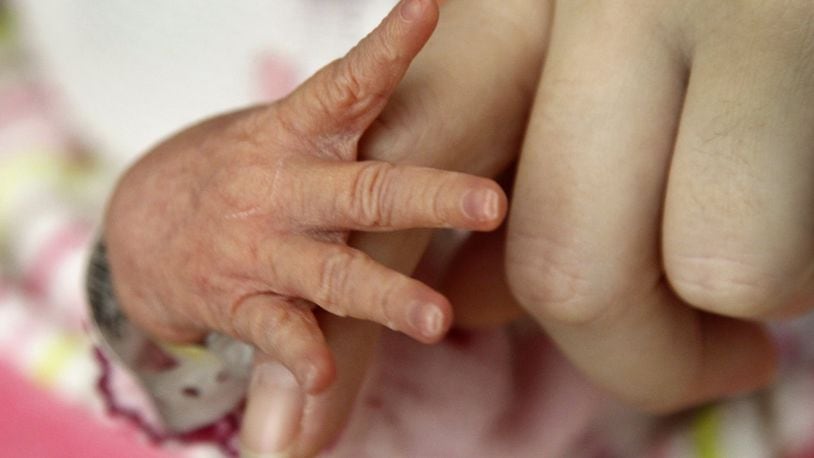“Today, Ohio is the first state in the country to screen for Duchenne muscular dystrophy (DMD) in newborns,” said Gov. Mike DeWine. “Adding DMD to the list of screenings newborns receive ensures that parents will be able to start initiating care early for children who are diagnosed with this condition.”
The provision to begin screening newborns for Duchenne muscular dystrophy was included in H.R. 33, the state’s budget bill for fiscal years 2024-2025, which DeWine signed in July 2023.
DMD joins the list of 40 other rare medical conditions included in the Ohio Department of Health’s newborn screening program, which identifies rare conditions in about 300 newborns a year, the state says.
“This addition means more children in Ohio will have the chance to live their best lives,” said Dr. Bruce Vanderhoff, director of the Ohio Department of Health.
The Ohio Department of Health estimates screening for DMD will identify 35 babies with it in Ohio each year. An estimated 20,000 cases are diagnosed each year worldwide.
Symptoms for DMD begin occurring in early childhood, usually between ages 2 and 3. There is currently no cure, but new treatments through gene therapy can help slow the progression of symptoms and improve quality of life, the state says.
Ohio also is well-positioned to treat children with this rare but severe muscle disease, the state says. Ohio has eight Comprehensive Genetics Centers, including three designated as Certified Duchenne Care Centers by the Parent Project Muscular Dystrophy advocacy organization: Nationwide Children’s Hospital in Columbus, Akron Children’s Hospital and Cincinnati Children’s Hospital Medical Center.
About the Author
